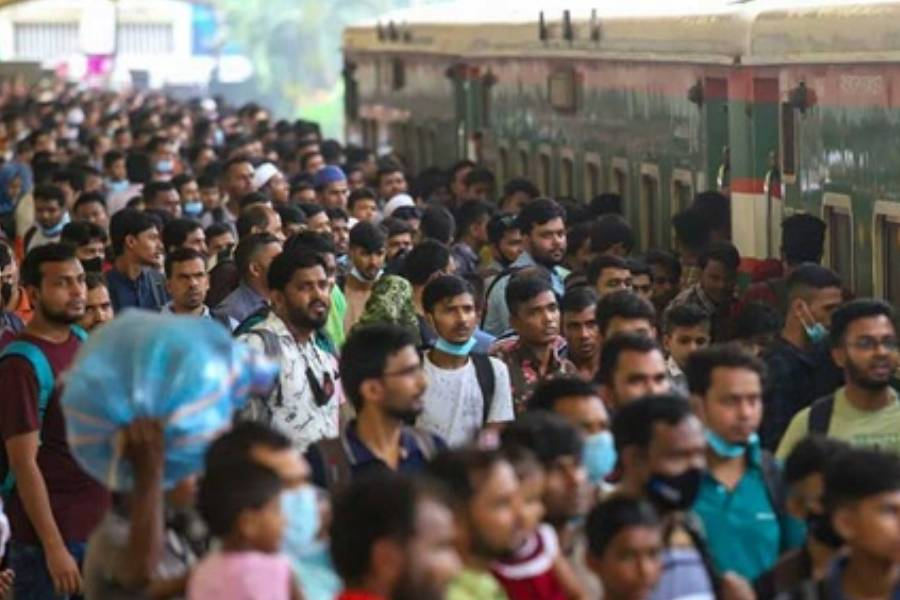
Published :
Updated :

As the Eid-ul-Fitr draws near, the country is also gearing up for an extended public holiday to celebrate the most significant religious and national festival. This year, the Eid holiday will merge with another national festival, Pahela Boishakh, the first day on the traditional Bangla calendar. Thus, almost a week-long public holiday will be there at a stretch, starting from April 10. The official Eid holidays will be observed until April 12 and the next day is Saturday or a regular weekly holiday. The day after or, April 14 is another holiday for Pahela Boishakh.
Last week, a proposal was made in the cabinet to declare April 9 as a public holiday to ease the excessive pressure on the Eid journey. The cabinet rejected the proposal, probably because it may create a holiday trap. Nevertheless, it is likely, as the previous years' experiences show that many of the government employees will start for their home districts from Dhaka by taking an additional leave on April 09, which is the 29th of Ramadan. The government has assumed that the Eid will be held on April 11 after completion of 30 days of Ramadan. Many have, however, started sending their family members by now as they will not get their official leave before 29th Ramadan. Thus, the Eid exodus will gather pace.
Eid exodus in Bangladesh is the second largest in the world after Indonesia, the largest country in terms of Muslim population. It is already estimated that some 193 million people across the world's largest archipelagic state will travel to their home districts and villages this year. Of them, around 18 million will leave the Greater Jakarta area alone, which is expected to cause heavy traffic congestion on roads and highways. In Bangladesh, around 15 million people may join the Eid journey from greater Dhaka to other parts of the country. This means that around two-thirds of the inhabitants in the capital city may rush to their villages and hometowns to meet their near and dear ones during the Eid holidays.
Managing the Eid exodus is challenging due to a lack of a well-coordinated and adequate public transport system. Exit from Dhaka becomes chaotic, worsening the traffic congestion on different points of the roads. Though north-bound, east-bound and south-bound highways have improved significantly with wider lanes and over-passes, some problems remain there. Makeshift markets on two sides of many highways, unauthorised bus stops here and there, unregulated presence of small vehicles like battery-run three-wheelers and motorcycles pose risks of accidents. Some unfit vehicles on the rivers are another big risk. An inadequate number of trains increases the troubles of the home goers during Eid. Growing reliance on motorcycles by many also enhances the risk of road accidents.
Against this backdrop, an extended public holiday is helpful for people to pass some better time with their families and friends at home towns and villages. So, the holiday for Lailatul-Qadar on 27th Ramadan may be shifted to next day by seeking advice from the Islamic scholars as Muslims are advised to seek the blessed night in the last ten odd nights of Ramadan.
Above all, the mass exodus during Eid indicates the uneven economic growth in the country over the decades. Instead of distributing the fruits of growth across the country in a balanced way, it becomes highly concentrated in the capital city. Limited decentralisation of education, health and job facilities drives many people to come to Dhaka at any cost. So, decentralisation is the ultimate solution to the problem of exodus during Eid, which can also reduce the risks of accidents and other troubles in the future.
asjadulk@gmail.com


 For all latest news, follow The Financial Express Google News channel.
For all latest news, follow The Financial Express Google News channel.